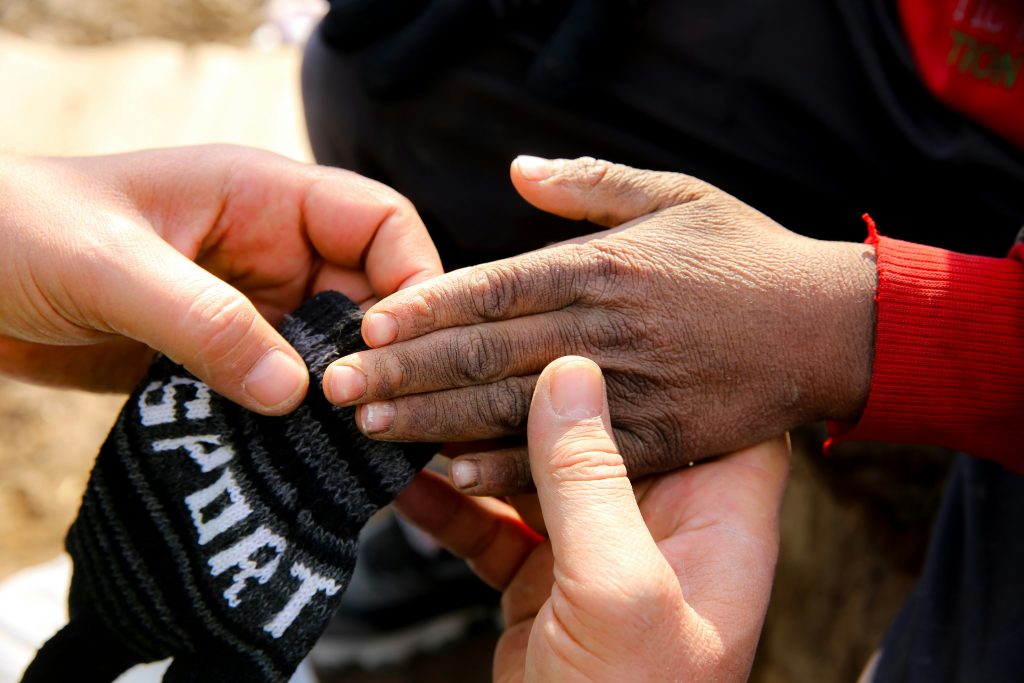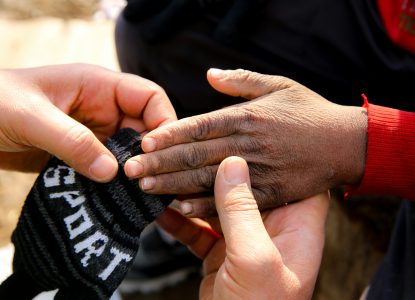By Marianna Richardson, Director of Communications for the G20 Interfaith Forum
– – –
This blog is part 4 of a 5-part series, exploring IF20’s five Priority Areas looking forward to the G20 Interfaith Forum in Cape Town, August 2025.
Migration, human trafficking, and modern slavery represent a triad of interlinked crises that continue to destabilize communities and challenge leadership across Africa. These issues are not only humanitarian emergencies but also moral imperatives that demand coordinated, multinational responses. The G20 Interfaith Forum (IF20) has long recognized the distinctive relevance of these challenges for Africa and continues to advocate for faith-based engagement, ethical policymaking, and global solidarity.
The Problem
Africa hosts over 25 percent of the world’s refugees and internally displaced persons, driven by conflict, climate shocks, and economic instability. In 2022 alone, over 9 million people were displaced due to conflict, while climate-related disasters forced another 7.4 million to flee their homes.1 These movements often lead to secondary vulnerabilities, including exposure to trafficking networks and exploitative labor systems. According to the Global Slavery Index, over 7 million Africans live under conditions of modern slavery, with Eritrea, Mauritania, and South Sudan among the highest prevalence rates.2
Human trafficking in Africa is increasingly orchestrated by transnational criminal syndicates that exploit weak borders, and weak governance. In West Africa, three out of four trafficking victims are children, often forced into labor or sexual exploitation.3 The Democratic Republic of the Congo, for example, faces alarming levels of conflict-related trafficking, including child recruitment and sexual slavery.4 Despite legal frameworks, enforcement remains fragmented, and survivor support systems are under-resourced.
Fear of migrants and refugees continues to shape political discourse, often fueling xenophobia and exclusionary policies. In North Africa, political rhetoric has led to violence against sub-Saharan migrants, prompting international condemnation.6 IF20 counters this narrative by calling for religious advocacy that affirms the humanity of those on the move and challenges discriminatory practices.

Solutions
IF20’s advocacy emphasizes the role of religious communities in responding to these crises. Across Africa, faith leaders are often the first responders—providing shelter, counseling, and moral guidance. Religious teachings, such as the Golden Rule and Ubuntu, offer powerful ethical frameworks for compassion, dignity, and solidarity.5
Looking ahead to 2025, IF20’s focus on multinational action against human trafficking will be central to its engagement with the G20. The IF20 calls for the establishment of a dedicated G20 working group to coordinate resources, share intelligence, and dismantle trafficking networks.7 This includes strengthening legal cooperation, investing in survivor-centered services, and leveraging technology for early detection.
Africa’s migration and trafficking crises are complex, but they are not insurmountable. Through faith-inspired action, ethical leadership, and global collaboration, IF20 envisions a continent where movement is safe, dignity is protected, and exploitation is no longer tolerated.
G20 Interfaith Forum South Africa 2025
During the IF20 Forum in Cape Town 2025, the problem of exploitation of displaced persons will be addressed in a plenary session specifically addressing the most vulnerable communities and how society can commit to leaving no one behind. This plenary draws together recommended IF20 strategies that at their heart center on equity, humanity, and interreligious solidarity. Its focus is on action proposals addressed both to the G20 and to religious and interreligious communities. The plight of refugees and especially vulnerable children and women are a focus, as are security and violence, within the home and community and beyond. How should concerns about the vulnerable be addressed in the context of human trafficking and modern slavery?
In the breakout sessions, there will be specific discussions focusing on refugees, migrants, and internally displaced people, as well as a discussion specifically on the fight against human trafficking and the IF20 commitment to eradicating this problem by 2030. Videos of these sessions will be available on the website, www.g20interfaith.org, and our YouTube Channel by the end of September.
– – –
Marianna Richardson is the Director of Communications for the G20 Interfaith Forum. She is also an adjunct professor at the Marriott School of Business at Brigham Young University.
—
Notes:
- International Organization for Migration and African Union Commission, Africa Migration Report, March 2024.
- Walk Free Foundation, Global Slavery Index 2023, https://www.walkfree.org/global-slavery-index/.
- UNODC and NAPTIP, Global Report on Trafficking in Persons, 2021.
- UN Special Rapporteur on Trafficking in Persons, Statement on DRC, July 2025.
- G20 Interfaith Forum, “Bridging Interreligious Tensions through Education,” July 2025, https://blog.g20interfaith.org/2025/07/30/south-africa-priority-3/.
- International Organization for Migration, Conflict Drives Displacement Amidst Rising Climate Shocks, March 2024.
- G20 Interfaith Forum, “Key Recommendations for Leaders,” September 2024, https://www.miragenews.com/g20-interfaith-forum-key-recommendations-for-1316765/.


